Striking university staff ‘forced to cut back on food’ as they ‘can’t pay the bills’
The University and CollegeUnion (UCU) walkouts are taking place at around 50 universities around the country
Your support helps us to tell the story
From reproductive rights to climate change to Big Tech, The Independent is on the ground when the story is developing. Whether it's investigating the financials of Elon Musk's pro-Trump PAC or producing our latest documentary, 'The A Word', which shines a light on the American women fighting for reproductive rights, we know how important it is to parse out the facts from the messaging.
At such a critical moment in US history, we need reporters on the ground. Your donation allows us to keep sending journalists to speak to both sides of the story.
The Independent is trusted by Americans across the entire political spectrum. And unlike many other quality news outlets, we choose not to lock Americans out of our reporting and analysis with paywalls. We believe quality journalism should be available to everyone, paid for by those who can afford it.
Your support makes all the difference.Striking university staff say they are being forced to cut back on food and are struggling to pay their bills in an ongoing row about pay.
More than 20,000 University and College Union (UCU) staff took part in a walkout on Monday against what they called “punitive” pay deductions for taking part in a marking boycott over the summer.
More than 140 universities across the UK had been due to take part, but a last-minute deal was made leaving around 50 involved in the five day walkouts this week. The biggest turnout in the capital was at Queen Mary, University of London.
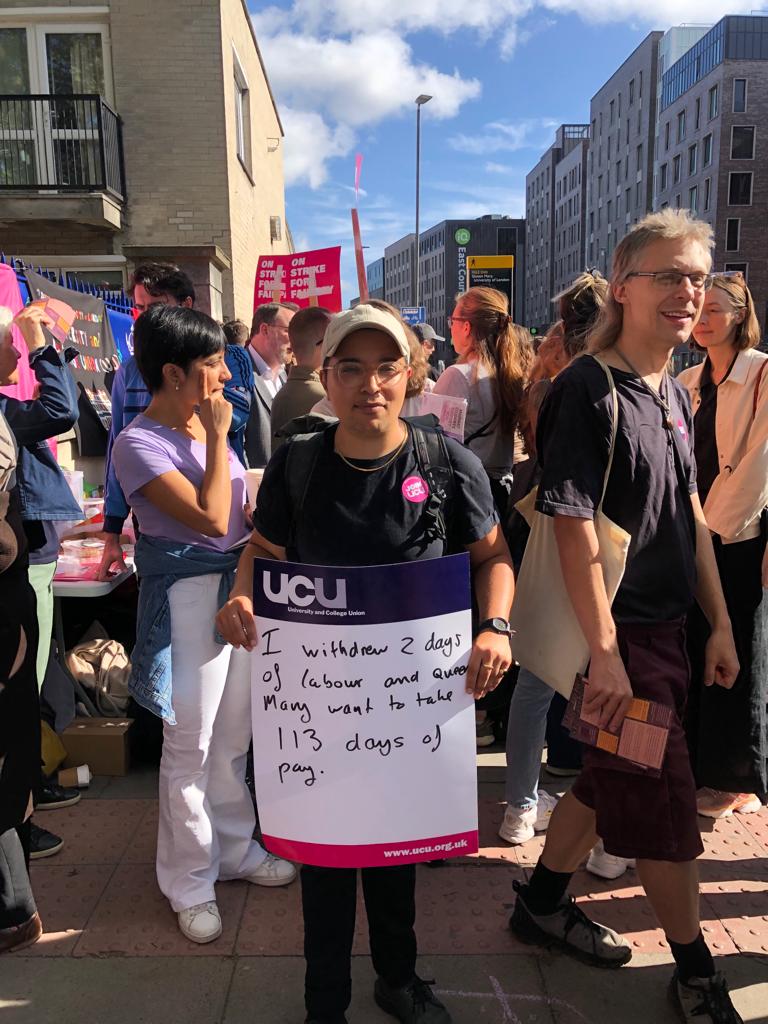
“I’ve not received full pay for five months for taking part in an entirely lawful boycott,” said Tanzil Chowdhury, a senior lecturer in law at Queen Mary told the Independent. “Over 70 percent of our workforce are on temporary contracts. I’d miss rent if I didn’t have the strike fund.
“I look after my parents and I’ve cut back on things like food, utilities and public transport. I’ve even had to ring our electricity provider to say, ‘I can’t make it this month.’”
It’s a sentiment echoed by his colleague Chris Moffat, a senior lecturer in history.
Mr Moffat, who has a partner and two-year-old child said: “Everything’s been affected. Nursery, mortgage payments, food and bills. I’ve been losing my salary since the 2nd of June. I only had fifteen essays to mark, and I could lose up to £15,000 because of it.”
UCU general secretary Jo Grady said: “We have seen many employers do the right thing. We are now urging other vice-chancellors to follow their lead.”

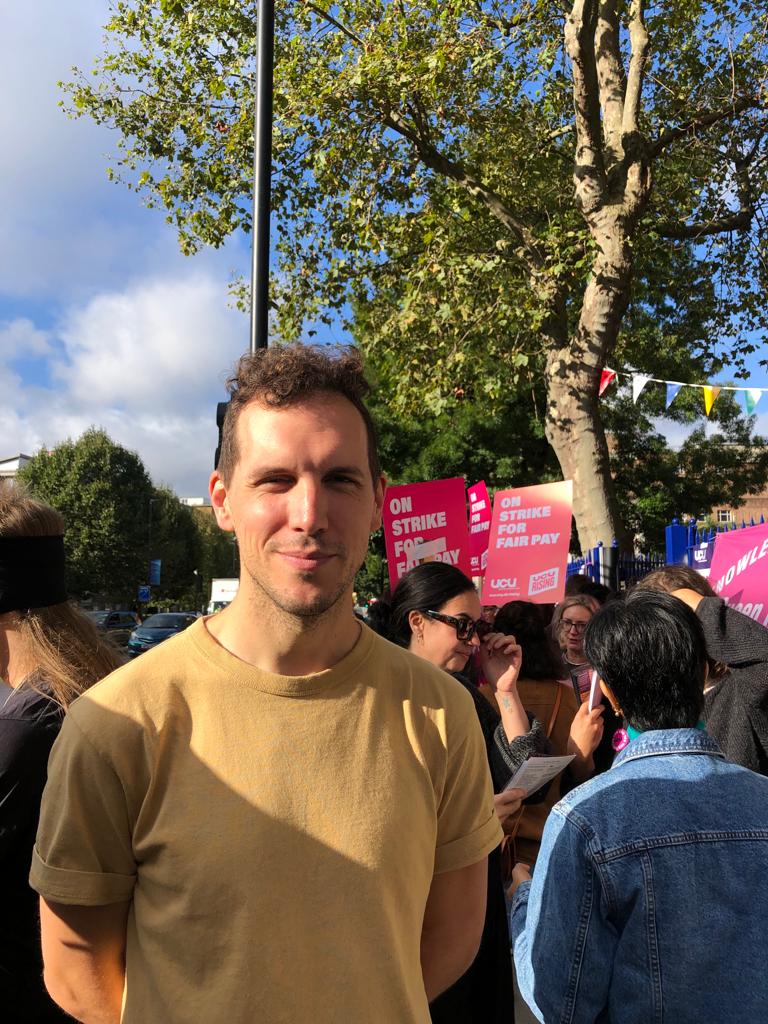
Yet for some, it is too late. kitt price, a senior lecturer in modern contemporary literature said they have maxed out credit cards and owe thousands of pounds after being penalised for taking two days of strike action. They are now part of a cohort of dozens taking legal action against the university.
“My case has been listed for a tribunal next year,” they said. “We’re still being affected months later. It’s intimidating. You don’t know whether you’re going to be paid at the end of the month.”
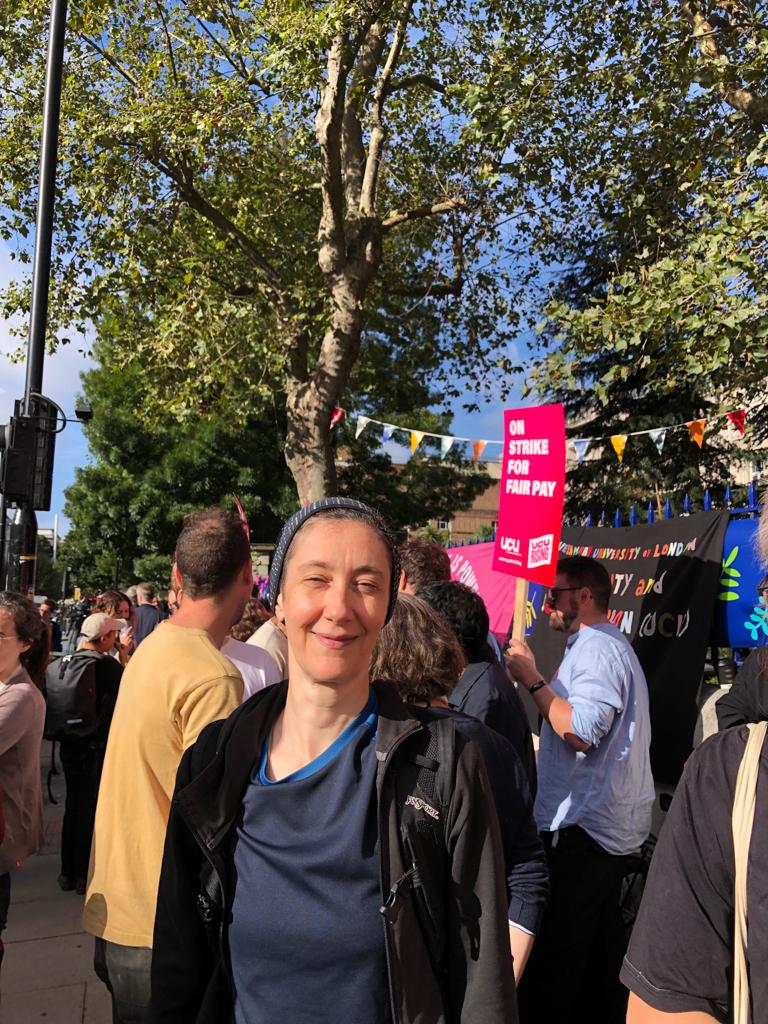
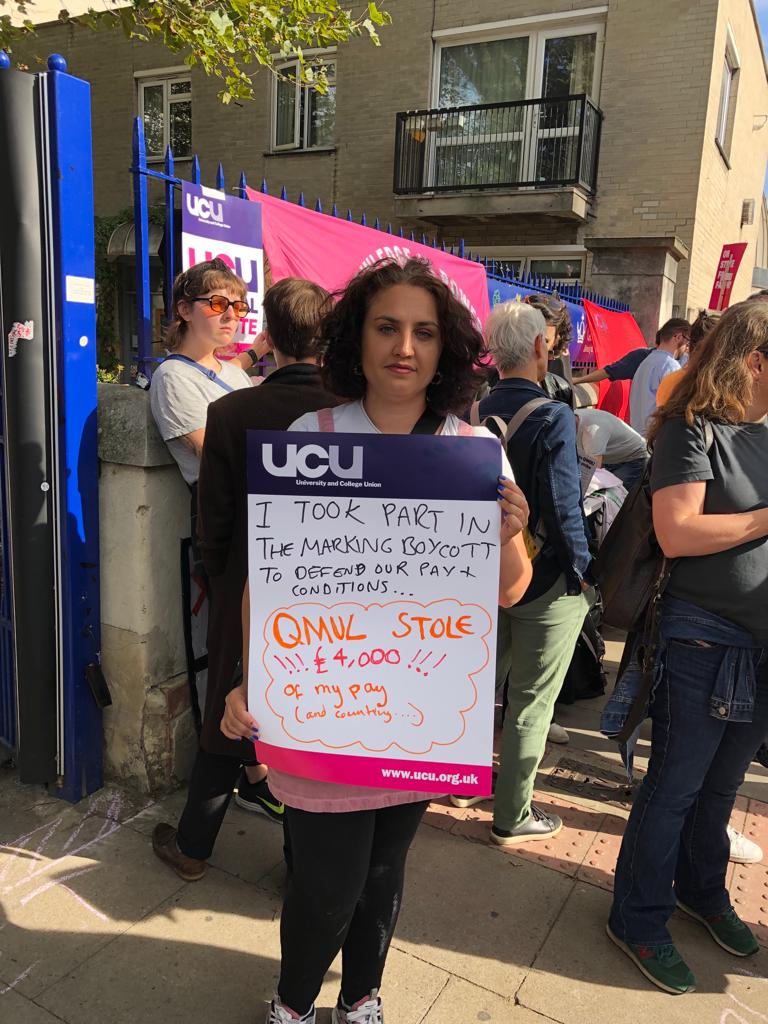
Staff taking part in the walkouts also shared concerns about their working conditions, citing zero-hour and temporary contracts causing them anxiety about their futures.
“It’s horrible,” said Jaz Blackwell-Pal, a lecturer in drama. “You can’t think about things like mortgages, having children or settling into an area. You can’t provide a serious world-leading quality of education under those conditions.”
She said she was taking part in the strikes for her students: “I don’t want them to live in a world where employers can bully staff and steal their wages for months.”
Many students chose not to cross the picket line as they supported their teachers in industrial action, despite classes being cancelled in their crucial first week of term.
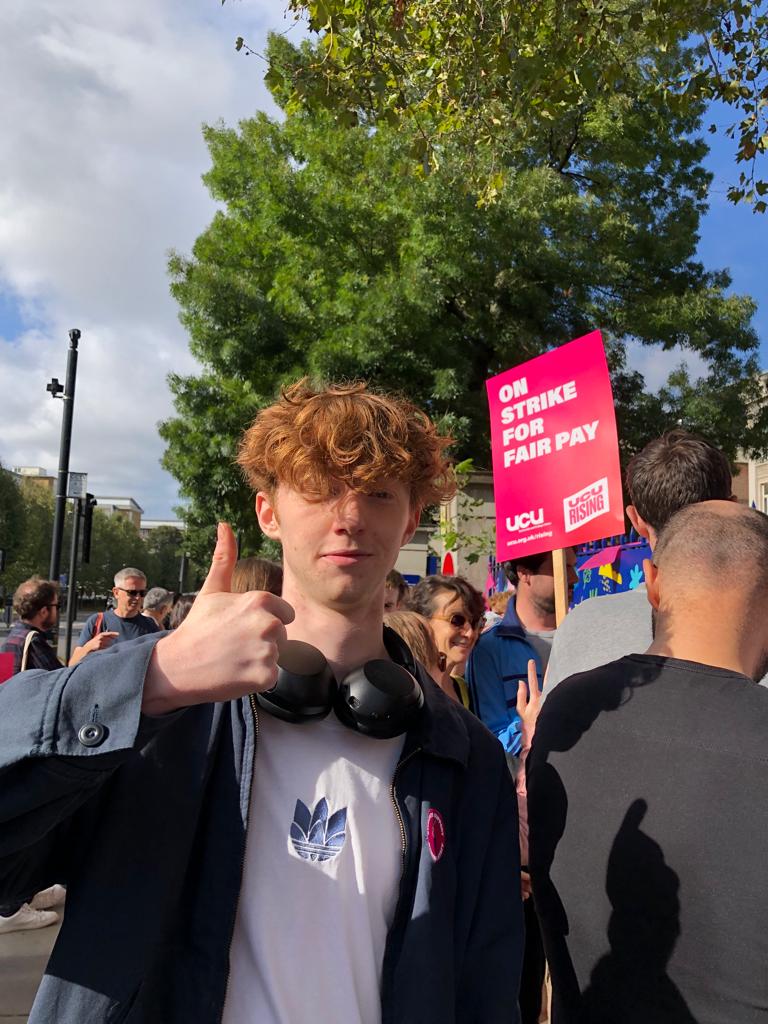
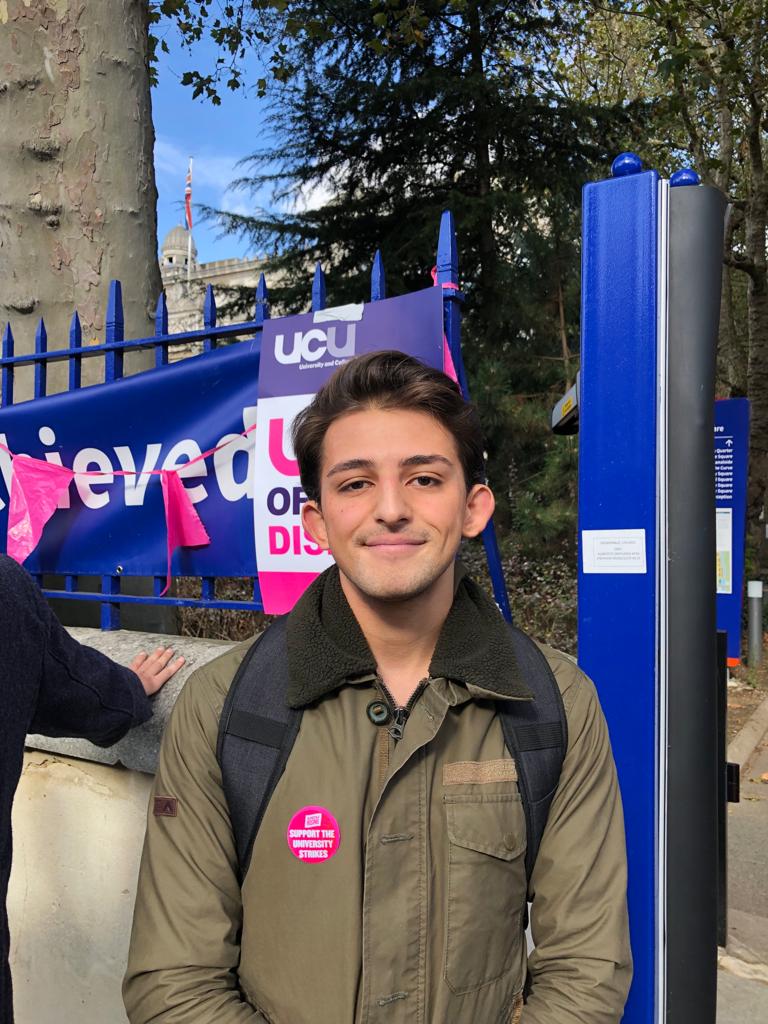
“It’s the most important time for us to be in, because this is when you get the groundwork for the rest of the years,” said law student Rory Shears. “I resent the strikes but I don’t blame the lecturers at all, I blame management.”
Bogdan Farcas, 20, is in his second year studying politics and international relations said he was “glad staff are standing up for themselves”.
And International Relations student Abdul Rahman, 18, said the issues his lecturers are striking over are reflective of a wider pattern of low pay in the UK.
“My mum doesn’t work so I have to, and it’s minimum wage,” he said. “The fact that these are professionals struggling with the same thing, it’s sad. Rishi Sunak is spending millions on campaigns but low pay isn’t one of his priorities, clearly.”
Ahead of the walkouts, Raj Jethwa, chief executive of the Universities and Colleges Employers Association (UCEA), said: “Students and staff will welcome the announcement that UCU has stood down strike days at the majority of institutions.
“UCEA’s priority is to work with the UCU and the other four trade unions on a number of important pay-related matters including the review of the pay spine, workload, contract types and further action to reduce the already falling pay gaps in the sector.
“A crucial element of resetting industrial relations in the sector is developing a shared understanding of affordability. For the sake of students and staff alike, it is now vital to work together to bring to an end the sector’s recent cycle of industrial disputes.”
A Queen Mary University of London spokesperson said: “Less than 1% of our staff are participating in the current industrial action and the vast majority of our students are unaffected.
“Queen Mary does not use zero hours contracts; nearly 90% of our academic staff are on indefinite contracts; and pay deductions for the marking and assessment boycott in the School of Law this summer covered a maximum of 28 days.
“From the outset of the industrial action, we have been clear that our first priority is to protect our students’ education and experience, which means that we accept that staff can stop, or deprioritise, all other activities including research, conferences and all non-educational activities. We do not withhold pay for staff so long as they prioritise and deliver all their core planned teaching activities. However, teaching and assessment are core activities for university staff, and we do withhold pay for staff who do not carry out these core activities due to industrial action.”




Join our commenting forum
Join thought-provoking conversations, follow other Independent readers and see their replies
Comments